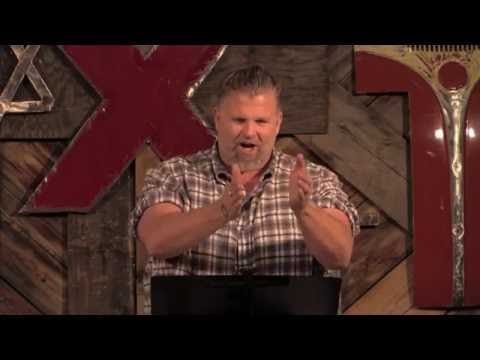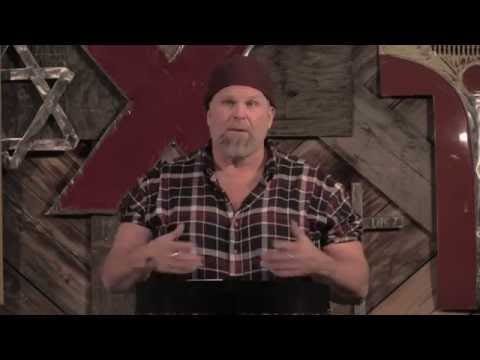
Acts 14:23 Bible Teaching
The teaching summary discusses the role of apostles and prophets in church governance, questioning modern claims of apostolic authority, emphasizing spiritual unity, and prioritizing love over structured institutions.

The teaching summary discusses the role of apostles and prophets in church governance, questioning modern claims of apostolic authority, emphasizing spiritual unity, and prioritizing love over structured institutions.

Jesus' death and resurrection secure eternal life for believers. He holds authority over life and death, symbolized by "keys of Hades and death," emphasizing His eternal dominion.

Communion at CAMPUS is participant-driven, not leadership-emphasized, seen as a memorial. Paul and Barnabas redirect idol worship to God. Shawn teaches against idolatry, emphasizing God's eternal nature. Paul highlights God's provision through nature, urging faith despite tribulations.

Paul and Barnabas preached powerfully, faced opposition, and performed miracles. Shawn teaches on God's message confirmation, spiritual fruit, and purposeful division.

Shawn's teaching on Revelation 1:13-18 highlights Jesus' divine attributes, linking Old Testament imagery to His exalted state, emphasizing His role as King, High Priest, and divine judge.

Paul's message in Acts 13 highlights justification through faith in Jesus, contrasting the Law of Moses. Despite Jewish opposition, Gentiles embraced it, expanding the Gospel.

Shawn reevaluates John's exile to Patmos, suggesting it was for missionary work, not persecution. He challenges traditional dating of Revelation, emphasizing internal biblical evidence over early church traditions, and proposes an early authorship date.

Paul's teaching highlights Jesus as the Savior, fulfilling God's promise to Israel. Through Jesus' resurrection, salvation extends to all, transcending the Law of Moses.

Shawn's teaching explores "Alpha and Omega" as symbols of God's eternal nature, Jesus' divine authority, and the transition from the Old to New Covenant, emphasizing a preterist view.

The teaching highlights the spiritual cleansing power of Jesus' blood, believers' elevated status as "ekklesia," the immediacy of Christ's return, and translation nuances in Revelation.

Paul and Barnabas's encounter with Sergius Paulus led to belief after Elymas's blinding. Paul preached Jesus as Savior in Antioch, highlighting Israel's history and David's faith.

Shawn's teaching highlights the Holy Spirit's role in guiding early Christians, ordination as separation, the importance of prayer, and the transformative Truth of Jesus. Paul confronts Elymas, showing divine insight and temporary judgment, emphasizing corrective, not permanent, punishment.

Shawn's teaching highlights the blessing of engaging with Revelation, explores interpretations of "seven spirits," emphasizes God's eternal nature, and Jesus' authority and redemptive role.

Revelation unveils Christ's role, using allegory and symbols, given by Christ to John for the seven churches. It emphasizes immediacy, urging adherence and readiness.

Self-examine motivations in service; discern Holy Spirit's guidance; revelations must align with scripture; Holy Spirit as God's presence, not a separate entity; challenge Trinitarianism.

Shawn's teaching contrasts pre-AD 70 and AD 95 dating of Revelation, emphasizing preterist views, John's age, and the state of churches. It highlights Jerusalem's destruction, Nero's role, and the immediacy of prophecies for early Christians.

Herod's disbelief led to guard executions; he died after failing to honor God. The church grew despite persecution, emphasizing spiritual over institutional faith.

Shawn's teaching critiques Revelation's consistency with New Testament grace, explores interpretative views (Idealist, Preterist, Historicist, Futurist), and questions its canonical status.

Shawn's teaching on Acts 12:5-19 emphasizes prayer's power, faith's role, and divine will. It contrasts spiritual vs. physical awareness, highlights divine intervention, and humorously explores faith vs. expectation through Rhoda's story.

Shawn discusses New Testament prophets like Agabus, their role as teachers, and symbolic acts. Agabus predicted a famine during Claudius's reign. Prophets today must align with scripture. Herod Agrippa persecuted Christians for political gain. Easter's translation issues are noted, and Christians are urged to respect others' beliefs, acting from faith and conscience.

Shawn's teaching examines Revelation's complex interpretations, emphasizing open-mindedness and Old Testament insights. He critiques preterism, favoring a post-AD 70 date for Revelation.

Jude 14-25 warns of judgment for the ungodly, urging steadfast faith, love, and prayer. Emphasizes God's power to protect, and the need for spiritual discernment and renewal.

Christianity spread to Gentiles post-Stephen's persecution, notably in Antioch. Shawn teaches faith order: God's presence, belief in Jesus, turning to God. Barnabas encouraged steadfast faith, challenging "Once Saved, Always Saved." Engaging with Scripture strengthens faith. "Christian" was initially derogatory, now signifies anointed followers. Believers act as vessels of the Holy Spirit, serving others.

Jude warns against false teachers infiltrating the church, using historical examples and metaphors like "wild waves" and "wandering stars" to highlight their destructive nature.

Shawn's teaching distinguishes Jesus' resurrection from His second coming, highlights Peter's role in extending salvation to Gentiles, and emphasizes inclusive, non-hierarchical Christian ministry.

Jude warns against false teachers corrupting grace; Paul emphasizes living righteously under Christ's love. Both stress faithfulness to avoid divine judgment.

Peter's message: Jesus, the risen Son of God, is Judge of all, offering grace and eternal life. Early Christians expected His imminent return. Paul taught freedom from the Law through faith in Jesus.

Jude's Epistle warns against false teachings, urging believers to uphold faith integrity, using spiritual tools, and remain vigilant. Authorship linked to Jesus' brother.

Shawn teaches Jesus' dual nature, faith's necessity, spiritual growth from basic to complex teachings, resurrection as spiritual transformation, and diverse resurrected bodies.

Peter's vision shows no human is unclean, emphasizing Jesus' universal cleansing. Belief is key for salvation. God shows no partiality, accepting the righteous.